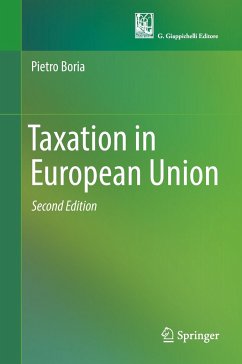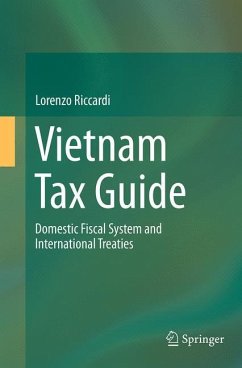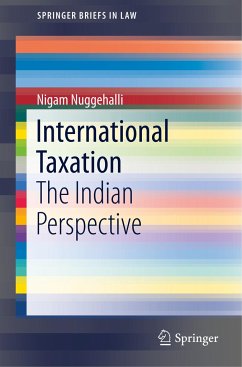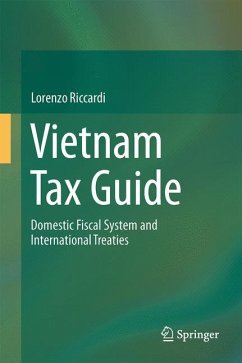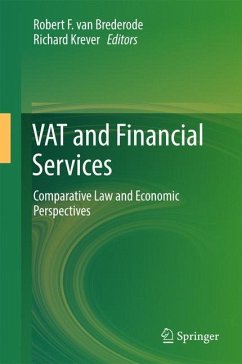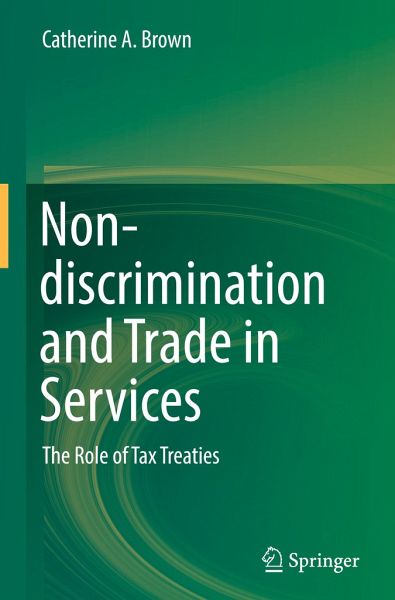
Non-discrimination and Trade in Services
The Role of Tax Treaties
Versandkostenfrei!
Versandfertig in 6-10 Tagen
106,99 €
inkl. MwSt.
Weitere Ausgaben:

PAYBACK Punkte
53 °P sammeln!
This book argues that the proliferation of global trade and the increasing power of free trade arrangements leave income taxes as one of the few remaining measures that can potentially be used for protectionist purposes. It analyzes the interaction between the non-discrimination principles in tax treaties and trade-related agreements including multilateral (WTO), regional (NAFTA, AANZTA) and bilateral free trade agreements. The absence of a non-discrimination obligation with respect to tax measures that apply to non-resident service providers and to non-resident services may, therefore, signif...
This book argues that the proliferation of global trade and the increasing power of free trade arrangements leave income taxes as one of the few remaining measures that can potentially be used for protectionist purposes. It analyzes the interaction between the non-discrimination principles in tax treaties and trade-related agreements including multilateral (WTO), regional (NAFTA, AANZTA) and bilateral free trade agreements. The absence of a non-discrimination obligation with respect to tax measures that apply to non-resident service providers and to non-resident services may, therefore, significantly undermine trade obligations. The book clearly reveals how these tax barriers to trade may unfairly or unnecessarily restrict trade in services, and puts forward a new, more effective non-discrimination obligation in tax matters to be included in tax treaties, one that would more closely parallel the non-discrimination obligations in trade agreements. The book examines the concept of non-discrimination in tax matters from several perspectives, specifically a North American and Australian perspective, as well as a perspective based on EU (and UK) law, focusing on the interaction between these legal systems, bilateral tax treaties, regional trade agreements and, where relevant, the General Agreement on Trade in Services (GATS). The book explores the possibility of a reciprocal influence between tax treaties and trade agreements, and poses the question as to whether tax treaties might do more in providing a non-discrimination principle in the cross-border trade in services.



